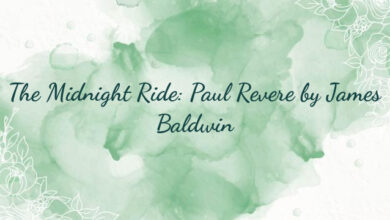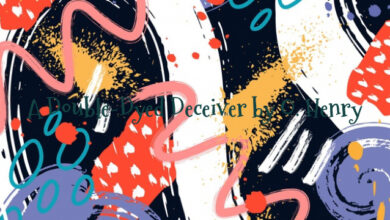
The Merry Tattle Of The Nuns Of Poissy by Honore de Balzac
The Abbey of Poissy has been rendered famous by old authors as a place of pleasure, where the misconduct of the nuns first began, and whence proceeded so many good stories calculated to make laymen laugh at the expense of our holy religion. The said abbey by this means became fertile in proverbs, which none of the clever folks of our day understand, although they sift and chew them in order to digest them.
If you ask one of them what the olives of Poissy are, they will answer you gravely that it is a periphrase relating to truffles, and that the way to serve them, of which one formerly spoke, when joking with these virtuous maidens, meant a peculiar kind of sauce. That’s the way the scribblers hit on truth once in a hundred times. To return to these good recluses, it was said–by way of a joke, of course–that they preferred finding a harlot in their chemises to a good woman. Certain other jokers reproached them with imitating the lives of the saints, in their own fashion, and said that all they admired in Mary of Egypt was her fashion of paying the boatmen. From whence the raillery: To honour the saints after the fashion of Poissy. There is still the crucifix of Poissy, which kept the stomachs warm; and the matins of Poissy, which concluded with a little chorister. Finally, of a hearty jade well acquainted with the ways of love, it was said–She is a nun of Poissy. That property of a man which he can only lend, was The key of the Abbey of Poissy. What the gate of the said abbey was can easily be guessed. This gate, door, wicket, opening, or road was always half open, was easier to open than to shut, and cost much in repairs. In short, at that period, there was no fresh device in love invented, that had not its origin in the good convent of Poissy. You may be sure there is a good deal of untruth and hyperbolical emphasis, in these proverbs, jests, jokes, and idle tales. The nuns of the said Poissy were good young ladies, who now this way, now that, cheated God to the profit of the devil, as many others did, which was but natural, because our nature is weak; and although they were nuns, they had their little imperfections. They found themselves barren in a certain particular, hence the evil. But the truth of the matter is, all these wickednesses were the deeds of an abbess who had fourteen children, all born alive, since they had been perfected at leisure. The fantastic amours and the wild conduct of this woman, who was of royal blood, caused the convent of Poissy to become fashionable; and thereafter no pleasant adventure happened in the abbeys of France which was not credited to these poor girls, who would have been well satisfied with a tenth of them. Then the abbey was reformed, and these holy sisters were deprived of the little happiness and liberty which they had enjoyed. In an old cartulary of the abbey of Turpenay, near Chinon, which in those later troublous times had found a resting place in the library of Azay, where the custodian was only too glad to receive it, I met with a fragment under the head of The Hours of Poissy, which had evidently been put together by a merry abbot of Turpenay for the diversion of his neighbours of Usee, Azay, Mongaugar, Sacchez, and other places of this province. I give them under the authority of the clerical garb, but altered to my own style, because I have been compelled to turn them from Latin into French. I commence:– At Poissy the nuns were accustomed to, when Mademoiselle, the king’s daughter, their abbess, had gone to bed….. It was she who first called it faire la petite oie, to stick to the preliminaries of love, the prologues, prefaces, protocols, warnings, notices, introductions, summaries, prospectuses, arguments, notices, epigraphs, titles, false-titles, current titles, scholia, marginal remarks, frontispieces, observations, gilt edges, bookmarks, reglets, vignettes, tail pieces, and engravings, without once opening the merry book to read, re-read, and study to apprehend and comprehend the contents. And she gathered together in a body all those extra-judicial little pleasures of that sweet language, which come indeed from the lips, yet make no noise, and practised them so well, that she died a virgin and perfect in shape. The gay science was after deeply studied by the ladies of the court, who took lovers for la petite oie, others for honour, and at times also certain ones who had over them the right of high and low jurisdiction, and were masters of everything –a state of things much preferred. But to continue: When this virtuous princess was naked and shameless between the sheets, the said girls (those whose cheeks were unwrinkled and their hearts gay) would steal noiselessly out of their cells, and hide themselves in that of one of the sisters who was much liked by all of them. There they would have cosy little chats, enlivened with sweetmeats, pasties, liqueurs, and girlish quarrels, worry their elders, imitating them grotesquely, innocently mocking them, telling stories that made them laugh till the tears came and playing a thousand pranks. At times they would measure their feet, to see whose were the smallest, compare the white plumpness of their arms, see whose nose had the infirmity of blushing after supper, count their freckles, tell each other where their skin marks were situated, dispute whose complexion was the clearest, whose hair the prettiest colour, and whose figure the best. You can imagine that among these figures sanctified to God there were fine ones, stout ones, lank ones, thin ones, plump ones, supple ones, shrunken ones, and figures of all kinds. Then they would quarrel amongst themselves as to who took the least to make a girdle, and she who spanned the least was pleased without knowing why. At times they would relate their dreams and what they had seen in them. Often one or two, at times all of them, had dreamed they had tight hold of the keys of the abbey. Then they would consult each other about their little ailments. One had scratched her finger, another had a whitlow; this one had risen in the morning with the white of her eye bloodshot; that one had put her finger out, telling her beads. All had some little thing the matter with them.
“Ah! you have lied to our mother; your nails are marked with white,” said one to her neighbour.
“You stopped a long time at confession this morning, sister,” said another. “You must have a good many little sins to confess.”
As there is nothing resembles a pussy-cat so much as a tom-cat, they would swear eternal friendship, quarrel, sulk, dispute and make it up again; would be jealous, laugh and pinch, pinch and laugh, and play tricks upon the novices.
At times they would say, “Suppose a gendarme came here one rainy day, where should we put him?”
“With Sister Ovide; her cell is so big he could get into it with his helmet on.”
“What do you mean?” cried Sister Ovide, “are not all our cells alike?”
Thereupon the girls burst out laughing like ripe figs. One evening they increased their council by a little novice, about seventeen years of age, who appeared innocent as a new-born babe, and would have had the host without confession. This maiden’s mouth had long watered for their secret confabulations, little feasts and rejoicings by which the nuns softened the holy captivity of their bodies, and had wept at not being admitted to them.
“Well,” said Sister Ovide to her, “have you had a good night’s rest, little one?”
“Oh no!” said she, “I have been bitten by fleas.”
“Ha! you have fleas in your cell? But you must get rid of them at once. Do you know how the rules of our order enjoin them to be driven out, so that never again during her conventional life shall a sister see so much as the tail of one?”
“No,” replied the novice.
“Well then, I will teach you. Do you see any fleas here? Do you notice any trace of fleas? Do you smell an odour of fleas? Is there any appearance of fleas in my cell? Look!”
“I can’t find any,” said the little novice, who was Mademoiselle de Fiennes, “and smell no odour other than our own.”
“Do as I am about to tell you, and be no more bitten. Directly you feel yourself pricked, you must strip yourself, lift your chemise, and be careful not to sin while looking all over your body; think only of the cursed flea, looking for it, in good faith, without paying attention to other things; trying only to catch the flea, which is a difficult job, as you may easily be deceived by the little black spots on your skin, which you were born with. Have you any, little one?”
“Yes,” cried she. “I have two dark freckles, one on my shoulder and one on my back, rather low down, but it is hidden in a fold of the flesh.”
“How did you see it?” asked Sister Perpetue.
“I did not know it. It was Monsieur de Montresor who found it out.”
“Ha, ha!” said the sister, “is that all he saw?”
“He saw everything,” said she, “I was quite little; he was about nine years old, and we were playing together….”
The nuns hardly being able to restrain their laughter, Sister Ovide went on–
“The above-mentioned flea will jump from your legs to your eyes, will try and hide himself in apertures and crevices, will leap from valley to mountain, endeavouring to escape you; but the rules of the house order you courageously to pursue, repeating aves. Ordinarily at the third ave the beast is taken.”
“The flea?” asked the novice.
“Certainly the flea,” replied Sister Ovide; “but in order to avoid the dangers of this chase, you must be careful in whatever spot you put your finger on the beast, to touch nothing else…. Then without regarding its cries, plaints, groans, efforts, and writhings, and the rebellion which frequently it attempts, you will press it under your thumb or other finger of the hand engaged in holding it, and with the other hand you will search for a veil to bind the flea’s eyes and prevent it from leaping, as the beast seeing no longer clearly will not know where to go. Nevertheless, as it will still be able to bite you, and will be getting terribly enraged, you must gently open its mouth and delicately insert therein a twig of the blessed brush that hangs over your pillow. Thus the beast will be compelled to behave properly. But remember that the discipline of our order allows you to retain no property, and the beast cannot belong to you. You must take into consideration that it is one of God’s creatures, and strive to render it more agreeable. Therefore, before all things, it is necessary to verify three serious things–viz.: If the flea be a male, if it be female, or if it be a virgin; supposing it to be a virgin, which is extremely rare, since these beasts have no morals, are all wild hussies, and yield to the first seducer who comes, you will seize her hinder feet, and drawing them under her little caparison, you must bind them with one of your hairs, and carry it to your superior, who will decide upon its fate after having consulted the chapter. If it be a male–“
“How can one tell that a flea is a virgin? asked the curious novice.
“First of all,” replied Sister Ovide, “she is sad and melancholy, does not laugh like the others, does not bite so sharp, has her mouth less wide open, blushes when touched–you know where.”
“In that case,” replied the novice, “I have been bitten by a male.”
At this the sisters burst out laughing so heartily that one of them sounded a bass note and voided a little water and Sister Ovide pointing to it on the floor, said–
“You see there’s never wind without rain.”
The novice laughed herself, thinking that these chuckles were caused by the sister’s exclamation.
“Now,” went on Sister Ovide, “if it be a male flea, you take your scissors, or your lover’s dagger, if by chance he has given you one as a souvenir, previous to your entry into the convent. In short, furnished with a cutting instrument, you carefully slit open the flanks of the flea. Expect to hear him howl, cough, spit, beg your pardon; to see him twist about, sweat, make sheep’s eyes, and anything that may come into his head to put off this operation. But be not astonished; pluck up your courage when thinking that you are acting thus to bring a perverted creature into the ways of salvation. Then you will dextrously take the reins, the liver, the heart, the gizzard, and noble parts, and dip them all several times into the holy water, washing and purifying them there, at the same time imploring the Holy Ghost to sanctify the interior of the beast. Afterwards you will replace all these intestinal things in the body of the flea, who will be anxious to get them back again. Being by this means baptised, the soul of the creature has become Catholic. Immediately you will get a needle and thread and sew up the belly of the flea with great care, with such regard and attention as is due to a fellow Christian; you will even pray for it–a kindness to which you will see it is sensible by its genuflections and the attentive glances which it will bestow upon you. In short, it will cry no more, and have no further desire to kill you; and fleas are often encountered who die from pleasure at being thus converted to our holy religion. You will do the same to all you catch; and the others perceiving it, after staring at the convert, will go away, so perverse are they, and so terrified at the idea of becoming Christians.”
“And they are therefore wicked,” said the novice. “Is there any greater happiness than to be in the bosom of the Church?”
“Certainly!” answered sister Ursula, “here we are sheltered from the dangers of the world and of love, in which there are so many.”
“Is there any other danger than that of having a child at an unseasonable time?” asked a young sister.
“During the present reign,” replied Ursula, raising her head, “love has inherited leprosy, St Anthony’s fire, the Ardennes’ sickness, and the red rash, and has heaped up all the fevers, agonies, drugs and sufferings of the lot in his pretty mortar, to draw out therefrom a terrible compound, of which the devil has given the receipt, luckily for convents, because there are a great number of frightened ladies, who become virtuous for fear of this love.”
Thereupon they huddled up close together, alarmed at these words, but wishing to know more.
“And is it enough to love, to suffer?” asked a sister.
“Oh, yes!” cried Sister Ovide.
“You love just for one little once a pretty gentleman,” replied Ursula, “and you have the chance of seeing your teeth go one by one, your hair fall off, your cheeks grow pallid, and your eyebrows drop, and the disappearance of your prized charms will cost you many a sigh. There are poor women who have scabs come upon their noses, and others who have a horrid animal with a hundred claws, which gnaws their tenderest parts. The Pope has at last been compelled to excommunicate this kind of love.”
“Ah! how lucky I am to have had nothing of that sort,” cried the novice.
Hearing this souvenir of love, the sisters suspected that the little one had gone astray through the heat of a crucifix of Poissy, and had been joking with the Sister Ovide, and drawing her out. All congratulated themselves on having so merry a jade in their company, and asked her to what adventure they were indebted for that pleasure.
“Ah!” said she, “I let myself be bitten by a big flea, who had already been baptised.”
At this speech, the sister of the bass note could not restrain a second sign.
“Ah!” said Sister Ovide, “you are bound to give us the third. If you spoke that language in the choir, the abbess would diet you like Sister Petronille; so put a sordine in your trumpet.”
“Is it true that you knew in her lifetime that Sister Petronille on whom God bestowed the gift of only going twice a year to the bank of deposit?” asked Sister Ursula.
“Yes,” replied Ovide. “And one evening it happened she had to remain enthroned until matins, saying, ‘I am here by the will of God.’ But at the first verse, she was delivered, in order that she should not miss the office. Nevertheless, the late abbess would not allow that this was an especial favour, granted from on high, and said that God did not look so low. Here are the facts of the case. Our defunct sister, whose canonisation the order are now endeavouring to obtain at the court of the Pope, and would have had it if they could have paid the proper costs of the papal brief; this Petronille, then, had an ambition to have her name included in the Calendar of Saints, which was in no way prejudicial to our order. She lived in prayer alone, would remain in ecstasy before the altar of the virgin, which is on the side of the fields, and pretend so distinctly to hear the angels flying in Paradise, that she was able to hum the tunes they were singing. You all know that she took from them the chant Adoremus, of which no man could have invented a note. She remained for days with her eyes fixed like the star, fasting, and putting no more nourishment into her body that I could into my eye. She had made a vow never to taste meat, either cooked or raw, and ate only a crust of bread a day; but on great feast days she would add thereto a morsel of salt fish, without any sauce. On this diet she became dreadfully thin, yellow and saffron, and dry as an old bone in a cemetery; for she was of an ardent disposition, and anyone who had had the happiness of knocking up against her, would have drawn fire as from a flint. However, little as she ate, she could not escape an infirmity to which, luckily or unluckily, we are all more or less subject. If it were otherwise, we should be very much embarrassed. The affair in question, is the obligation of expelling after eating, like all the other animals, matter more or less agreeable, according to constitution. Now Sister Petronille differed from all others, because she expelled matter such as is left by a deer, and these are the hardest substances that any gizzard produces, as you must know, if you have ever put your foot upon them in the forest glade, and from their hardness they are called bullets in the language of forestry. This peculiarity of Sister Petronille’s was not unnatural, since long fasts kept her temperament at a permanent heat. According to the old sisters, her nature was so burning, that when water touched her, she went frist! like a hot coal. There are sisters who have accused her of secretly cooking eggs, in the night, between her toes, in order to support her austerities. But these were scandals, invented to tarnish this great sanctity of which all the other nunneries were jealous. Our sister was piloted in the way of salvation and divine perfection by the Abbot of St. Germaine- des-Pres de Paris–a holy man, who always finished his injunctions with a last one, which was to offer to God all our troubles, and submit ourselves to His will, since nothing happened without His express commandment. This doctrine, which appears wise at first sight, has furnished matter for great controversies, and has been finally condemned on the statement of the Cardinal of Chatillon, who declared that then there would be no such thing as sin, which would considerably diminish the revenues of the Church. But Sister Petronille lived imbued with this feeling, without knowing the danger of it. After Lent, and the fasts of the great jubilee, for the first time for eight months she had need to go to the little room, and to it she went. There, bravely lifting her dress, she put herself into a position to do that which we poor sinners do rather oftener. But Sister Petronille could only manage to expectorate the commencement of the thing, which kept her puffing without the remainder making up its mind to follow. In spite of every effort, pursing of the lips and squeezing of body, her guest preferred to remain in her blessed body, merely putting his head out of the window, like a frog taking the air, and felt no inclination to fall into the vale of misery among the others, alleging that he would not be there in the odour of sanctity. And his idea was a good one for a simple lump of dirt like himself. The good saint having used all methods of coercion, having overstretched her muscles, and tried the nerves of her thin face till they bulged out, recognised the fact that no suffering in the world was so great, and her anguish attaining the apogee of sphincterial terrors, she exclaimed, ‘Oh! my God, to Thee I offer it!’ At this orison, the stoney matter broke off short, and fell like a flint against the wall of the privy, making a croc, croc, crooc, paf! You can easily understand, my sisters, that she had no need of a torch- cul, and drew back the remainder.”
“Then did she see angels?” asked one.
“Have they a behind?” asked another.
“Certainly not,” said Ursula. “Do you not know that one general meeting day, God having ordered them to be seated, they answered Him that they had not the wherewithal.”
Thereupon they went off to bed, some alone, others nearly alone. They were good girls, who harmed only themselves.
I cannot leave them without relating an adventure which took place in their house, when Reform was passing a sponge over it, and making them all saints, as before stated. At that time, there was in the episcopal chair of Paris a veritable saint, who did not brag about what he did, and cared for naught but the poor and suffering, whom the dear old Bishop lodged in his heart, neglecting his own interests for theirs, and seeking out misery in order that he might heal it with words, with help, with attentions, and with money, according to the case: as ready to solace the rich in their misfortunes as the poor, patching up their souls and bringing them back to God; and tearing about hither and thither, watching his troop, the dear shepherd! Now the good man went about careless of the state of his cassocks, mantles, and breeches, so that the naked members of the church were covered. He was so charitable that he would have pawned himself to save an infidel from distress. His servants were obliged to look after him carefully. Ofttimes he would scold them when they changed unasked his tattered vestments for new; and he used to have them darned and patched, as long as they would hold together. Now this good archbishop knew that the late Sieur de Poissy had left a daughter, without a sou or a rag, after having eaten, drunk, and gambled away her inheritance. This poor young lady lived in a hovel, without fire in winter or cherries in spring; and did needlework, not wishing either to marry beneath her or sell her virtue. Awaiting the time when he should be able to find a young husband for her, the prelate took it into his head to send her the outside case of one to mend, in the person of his old breeches, a task which the young lady, in her present position, would be glad to undertake. One day that the archbishop was thinking to himself that he must go to the convent of Poissy, to see after the reformed inmates, he gave to one of his servants, the oldest of his nether garments, which was sorely in need of stitches, saying, “Take this, Saintot, to the young ladies of Poissy,” meaning to say, “the young lady of Poissy.” Thinking of affairs connected with the cloister, he did not inform his varlet of the situation of the lady’s house; her desperate condition having been by him discreetly kept a secret. Saintot took the breeches and went his way towards Poissy, gay as a grasshopper, stopping to chat with friends he met on the way, slaking his thirst at the wayside inns, and showing many things to the breeches during the journey that might hereafter be useful to them. At last he arrived at the convent, and informed the abbess that his master had sent him to give her these articles. When the varlet departed, leaving with the reverend mother, the garment accustomed to model in relief the archiepiscopal proportions of the continent nature of the good man, according to the fashion of the period, beside the image of those things of which the Eternal Father had deprived His angels, and which in the good prelate did not want for amplitude. Madame the abbess having informed the sisters of the precious message of the good archbishop they came in haste, curious and hustling, as ants into whose republic a chestnut husk has fallen. When they undid the breeches, which gaped horribly, they shrieked out, covering their eyes with one hand, in great fear of seeing the devil come out, the abbess exclaiming, “Hide yourselves my daughters! This is the abode of mortal sin!”
The mother of the novices, giving a little look between her fingers, revived the courage of the holy troop, swearing by an Ave that no living head was domiciled in the breeches. Then they all blushed at their ease, while examining this habitavit, thinking that perhaps the desire of the prelate was that they should discover therein some sage admonition or evangelical parable. Although this sight caused certain ravages in the hearts of those most virtuous maidens, they paid little attention to the flutterings of their reins, but sprinkling a little holy water in the bottom of the abyss, one touched it, another passed her finger through a hole, and grew bolder looking at it. It has even been pretended that, their first stir over, the abbess found a voice sufficiently firm to say, “What is there at the bottom of this? With what idea has our father sent us that which consummates the ruin of women?”
“It’s fifteen years, dear mother, since I have been permitted to gaze upon the demon’s den.”
“Silence, my daughter. You prevent me thinking what is best to be done.”
Then so much were these archiepiscopal breeches turned and twisted about, admired and re-admired, pulled here, pulled there, and turned inside out–so much were they talked about, fought about, thought about, dreamed about, night and day, that on the morrow a little sister said, after having sung the matins, to which the convent had a verse and two responses–“Sisters, I have found out the parable of the archbishop. He has sent us as a mortification his garment to mend, as a holy warning to avoid idleness, the mother abbess of all the vices.”
Thereupon there was a scramble to get hold of the breeches; but the abbess, using her high authority, reserved to herself the meditation over this patchwork. She was occupied during ten days, praying, and sewing the said breeches, lining them with silk, and making double hems, well sewn, and in all humility. Then the chapter being assembled, it was arranged that the convent should testify by a pretty souvenir to the said archbishop their delight that he thought of his daughters in God. Then all of them, to the very youngest, had to do some work on these blessed breeches, in order to do honour to the virtue of the good man.
Meanwhile the prelate had had so much to attend to, that he had forgotten all about his garment. This is how it came about. He made the acquaintance of a noble of the court, who, having lost his wife–a she-fiend and sterile–said to the good priest, that he had a great ambition to meet with a virtuous woman, confiding in God, with whom he was not likely to quarrel, and was likely to have pretty children. Such a one he desired to hold by the hand, and have confidence in. Then the holy man drew such a picture of Mademoiselle de Poissy, that this fair one soon became Madame de Genoilhac. The wedding was celebrated at the archiepiscopal palace, where was a feast of the first quality and a table bordered with ladies of the highest lineage, and the fashionable world of the court, among whom the bride appeared the most beautiful, since it has certain that she was a virgin, the archbishop guaranteeing her virtue.
When the fruit, conserves, and pastry were with many ornaments arranged on the cloth, Saintot said to the archbishop, “Monseigneur, your well-beloved daughters of Poissy send you a fine dish for the centre.”
“Put it there,” said the good man, gazing with admiration at an edifice of velvet and satin, embroidered with fine ribbon, in the shape of an ancient vase, the lid of which exhaled a thousand superfine odours.
Immediately the bride, uncovering it, found therein sweetmeats, cakes, and those delicious confections to which the ladies are so partial. But of one of them–some curious devotee–seeing a little piece of silk, pulled it towards her, and exposed to view the habitation of the human compass, to the great confusion of the prelate, for laughter rang round the table like a discharge of artillery.
“Well have they made the centre dish,” said the bridegroom. “These young ladies are of good understanding. Therein are all the sweets of matrimony.”
Can there be any better moral than that deduced by Monsieur de Genoilhac? Then no other is needed.




